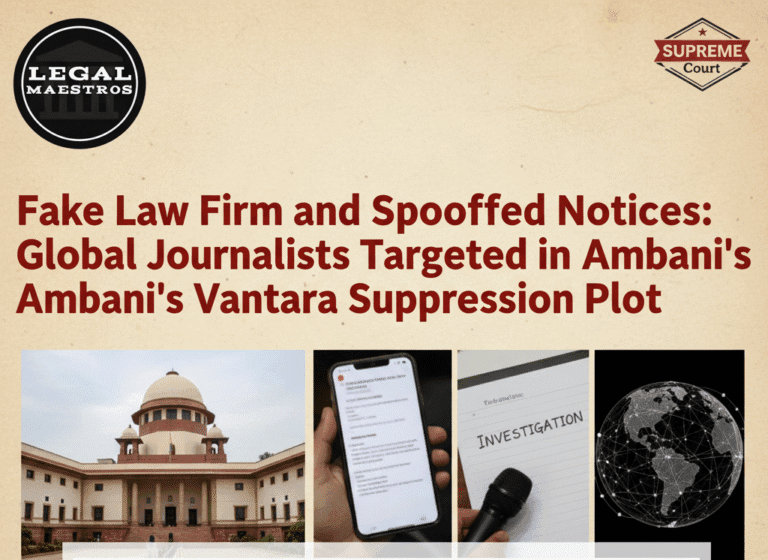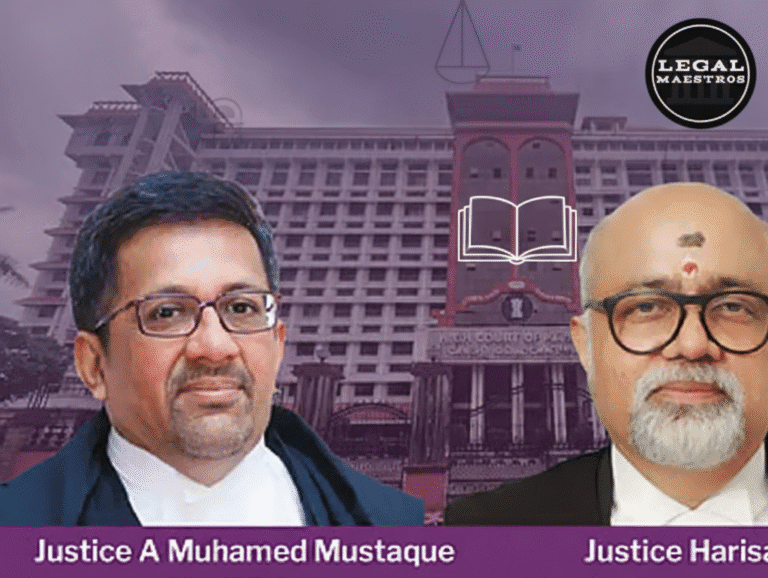
The Supreme Court of India has turned down a legal petition filed by the head of Rashtriya Janata Dal (RJD) Lalu Prasad Yadav, to postpone his trial in the land-for-jobs scam case. The case does not involve only the fate of a single individual; it is a sharp knock at the door that reminds one of one of the key tenets of the Indian law the right to trial within reasonable time. The paper is going to analyse the legal and constitutional premise of the Supreme Court judgment and capture its implications on justice system in India at large.
The case of the Land-for-Jobs Scam
Before we can process the decision that is made in the court, we must first of all know what the case is all about. Central Bureau of Investigation (CBI) has charged Lalu Prasad Yadav, his family, and his associates with conspiracy of large scale which supposedly occurred between 2004 and 2009. Yadav was the Union Railway Minister at this time. The allegation is that Yadav and the family exchanged very cheap or as a gift land parcels in relation to providing jobs within the Indian Railways. CBI alleges that the appointment was not announced publicly and no due process was followed and those who landed those jobs are people of Patna but they were appointed in various railway zones nationally.
Yadav has always refuted such claims terming the case as politically instigated. He has even created a legal tribulation, relying that the First Information Report (FIR) presented by the CBI is not tenable on the grounds that the FIR had been filed verifying the authorization of the central government, as it is ascertained in the Prevention of Corruption Act. This aspect is very critical in his defense.
For any queries or to publish an article or post or advertisement on our platform, do call at +91 6377460764 or email us at contact@legalmaestros.com.
The case of the Land for Jobs Scam
Before we can process the decision that is made in the court, we must first of all know what the case is all about. Central Bureau of Investigation (CBI) has charged Lalu Prasad Yadav, his family, and his associates with conspiracy of large scale which supposedly occurred between 2004 and 2009. Yadav was the Union Railway Minister at this time. The allegation is that Yadav and the family exchanged very cheap or as a gift land parcels in relation to providing jobs within the Indian Railways. CBI alleges that the appointment was not announced publicly and no due process was followed and those who landed those jobs are people of Patna but they were appointed in various railway zones nationally.
Yadav has always refuted such claims terming the case as politically instigated. He has even created a legal tribulation, relying that the First Information Report (FIR) presented by the CBI is not tenable on the grounds that the FIR had been filed verifying the authorization of the central government, as it is ascertained in the Prevention of Corruption Act. This aspect is very critical in his defense.
The Law of Speedy Trial as applied in India
The case decision by the Supreme Court is very well founded on the legal basis of Right to Speedy Trial. It is not a procedural rule only but rather a fundamental right of all the citizens of India. The legal basis will look like this:
For any queries or to publish an article or post or advertisement on our platform, do call at +91 6377460764 or email us at contact@legalmaestros.com.
The constitution of India-Article 21: Article 21 of the constitution of India is the Art that stipulates the rights of the people to have the basic rights of life and liberty. The Supreme Court has over the years interpreted this article to also mean the right to speedy trial. The argument is that an unnecessary delay of a trial can be construed as deprivation of the liberty of an individual. In more renowned ones such as Hussainara Khatoon v. P. Ramachandra Rao and others v. State of Karnataka, the Supreme Court has again and again pointed to the directive in Article 21 that a fair and just procedure should provide a reasonably speedy trial.
Legal framework and judicial decisions: The issue has also been mentioned by the Supreme Court that an individual must not have to go through the pressure and difficulty of a too prolonged law suit. Although a trial does not have any specific time limit, the courts have a responsibility of making sure that cases are dealt with within a minimum time possible. The judiciary has frequently spoken out against the syllable-motion syndrome that afflicts the Indian legal system as it is being referred to as something fatal to a fair trial. The judgment of the court which denied the appeal of Lalu Prasad Yadav follows this philosophy of the court. It demonstrates that the court is not joking when it comes to denying criminals the opportunities to extend a trial by employing legal methods.
Why the decision of the Supreme Court is important
The fact that the Supreme Court refused to postpone the trial has the following implications:
For any queries or to publish an article or post or advertisement on our platform, do call at +91 6377460764 or email us at contact@legalmaestros.com.
Strengthening of the Right to Speedy Justice: The judgement sends a strong message that the right to a speedy justice is not a matter of trifles and is not subject to negotiations. It also does not allow an accused individual to stall a trial indefinitely because he/she is allowed to file petitions at different stages.
Deterrence of Legal Gambits: The ruling of the court can be interpreted as an effort to deter so called delaying gambits. By saying that the framing of charges will not render his other petition “infructuous,” the court also has denied the possibility of using the loophole that could be used to delay the process.
Protecting the independence of the Judiciary- the Supreme Court is defending itself as the last resort justice system. Its ruling allays any delay by the lower courts which in this case is the trial court in Delhi because it has an operating place in higher courts which are not directly involved in the proceedings being carried.
For any queries or to publish an article or post or advertisement on our platform, do call at +91 6377460764 or email us at contact@legalmaestros.com.
Implication to High-Profiled Cases: The court ruling has established a landmark which will be instrumental especially in high-profiled cases relating to persons of high influence in the political arena. It shows justice system to be unaffected by the position of the accused and to be more concerned with whether cases are being disposed well on time or not.
The decision by the Supreme Court to dismiss the request by Lalu Prasad Yadav to postpone his trial is a compelling illustration of the sacrifice made by the Indian justice system that operates on the guideline of a swift trial. It reiterates the fact that the right to a fair procedure that is just is guaranteed in the constitution and a legal procedure may not be a means of perennially delaying justice. The ruling paves the way to the trial court to go about framing charges, another step towards the series of events leading to the end of the case. The ruling is a crucial reminder to all stakeholders including the prosecution and the person accused to take the case seriously because, in this case, justice delayed is justice denied.






![Research Assistantship @ Sahibnoor Singh Sindhu, [Remote; Stipend of Rs. 7.5k; Dec 2025 & Jan 2026]: Apply by Nov 14, 2025!](https://legalmaestros.com/wp-content/uploads/2025/11/Gemini_Generated_Image_s0k4u6s0k4u6s0k4-768x707.png)
![Karanjawala & Co Hiring Freshers for Legal Counsel [Immediate Joining; Full Time Position in Delhi]: Apply Now!](https://legalmaestros.com/wp-content/uploads/2025/11/Gemini_Generated_Image_52f8mg52f8mg52f8-768x711.png)